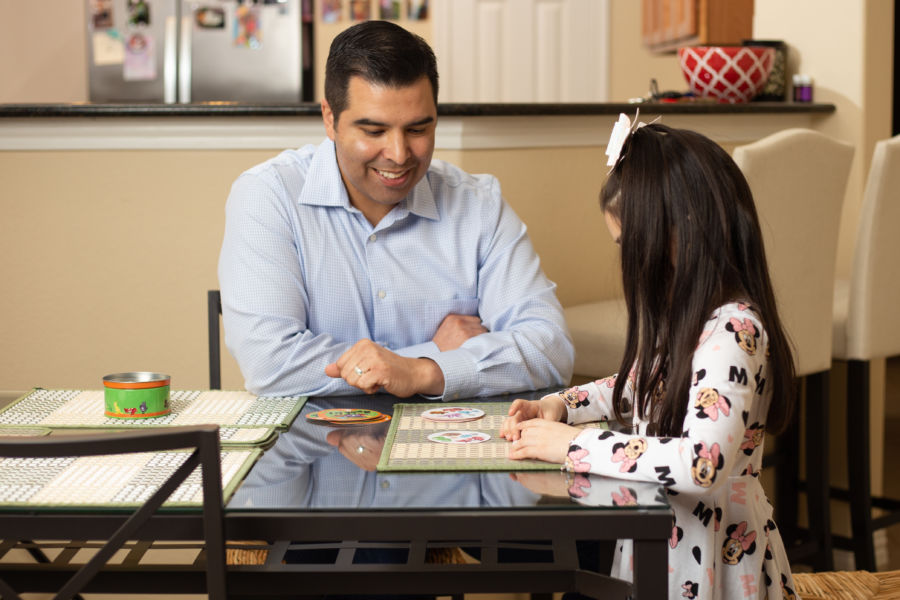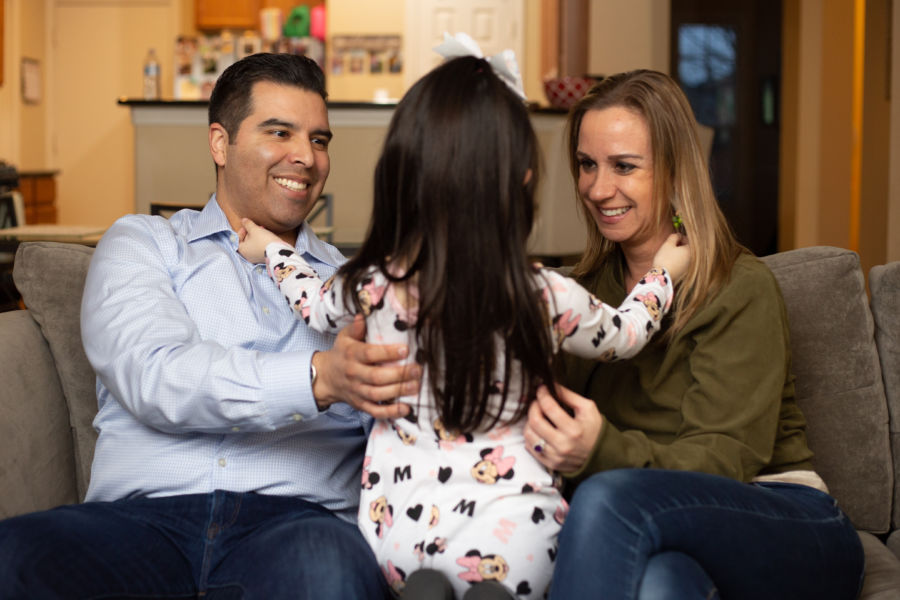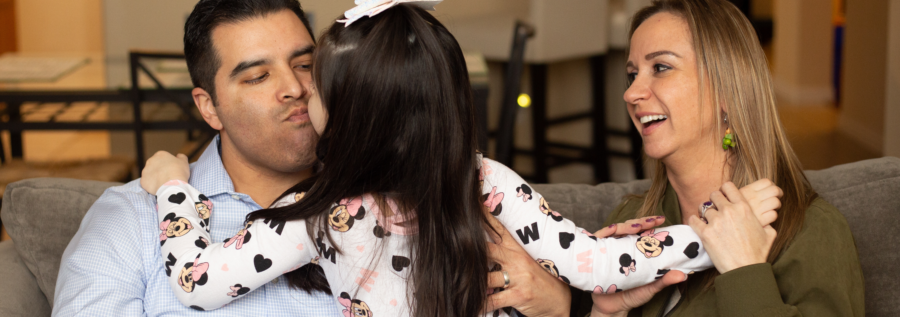More than anything, Chris Clay wants closure for his 5-year-old daughter. But since her mother died in an auto accident two years ago (Chris and the mother were not married), the little girl has been at the center of a complicated, drawn-out custody fight that seems to have long since lost sight of what’s best for any child.

It should be a simple question—when does an unrelated third-party individual have standing to demand custody of a child in court? Don’t parents have fundamental rights—especially when there’s never been any question about a parent’s fitness?
Yet because of a judge’s temporary orders, Chris is ordered to share his daughter with her late mother’s former live-in boyfriend. That case will go before the Texas Supreme Court on March 25; Texas Public Policy Foundation attorneys will argue in support of the father, in defense of parental rights.
“My daughter has been very confused by this,” he says. “She doesn’t get it. She doesn’t know why we would have to meet at a Walmart across town, why she has to spend time with him. She didn’t want to go, and those visits caused her to regress.”
 Chris’ daughter was born in August 2014. Chris and the new baby’s mom weren’t married, but they worked hard to co-parent the little girl, even after they broke up. They went through mediation to ensure that her needs were met and the terms of custody were clear and fair. Chris stayed in the home he bought—the only home his daughter had known—and the mom moved across town, closer to her parents.
Chris’ daughter was born in August 2014. Chris and the new baby’s mom weren’t married, but they worked hard to co-parent the little girl, even after they broke up. They went through mediation to ensure that her needs were met and the terms of custody were clear and fair. Chris stayed in the home he bought—the only home his daughter had known—and the mom moved across town, closer to her parents.
“We shared custody 50-50,” Chris explains. “And we worked together well. Like any other family situation, there are times you’ve got to be flexible; I might have had to go out of town, or she might. And we worked those times out.”
Because of Chris’ work schedule, his daughter’s mom actually had her a little more than half the time—making her, in the eyes of the family court, the “primary” custodian.
But when the mom died in July 2018, everything got complicated. The little girl went home with her father that night, of course. But in the next few weeks, his daughter’s grieving grandparents (the mother’s parents) sought to win custody rights for themselves. So did the live-in boyfriend.
A Denton County family court judge seemed to side with the grandparents, and ruled that the live-in boyfriend had standing to sue Chris for time with the child. She later granted the unrelated man conservator rights, on the grounds that he had lived with mother for approximately 11 months before her death, and was present during the 50-percent of the time the child resided with her mother under the custody order.
Texas law says that if an adult has spent six months helping with the care, control, or possession of a child, that adult has legal standing to file a lawsuit seeking custody of that child.

In her temporary orders, the judge ruled that Chris’ daughter must spend second and fourth Saturdays of each month with the man.
“It is important to me that my daughter and her grandparents continue to have a relationship,” Chris says. “But this is my daughter, and it is my responsibility to care for her and look out for her best interests. It should be up to me, not the court, to decide if she should spend time with this unrelated man or not.”
Chris is now married; his wife, Paula, is a public school teacher with a bilingual fourth-grade class, and the couple are raising their little girl to be bilingual.

“There are all kinds of families,” Chris said. “My daughter, when you talk to her, will say, ‘I’ve got a mommy in Heaven and I have a mommy here.’ And you know what? This litigation isn’t what her mother would want for her. Not this.”
TPPF attorney Robert Henneke will be arguing in support of Chris before the Texas Supreme Court. In September, TPPF filed an amicus brief in the case.
“The U.S. Supreme Court has acknowledged that parental rights are constitutionally protected, and that has been reflected in the state’s jurisprudence,” Henneke says. “I’ll be arguing that parental rights are fundamental and inherent, and not something granted by government. Parents should have the fundamental right to direct the upbringing of their children—in all circumstances.”
 Chris hopes that the eventual ruling will bring the closure he seeks for his daughter.
Chris hopes that the eventual ruling will bring the closure he seeks for his daughter.
“Why has it even gone this far?” he asks. “I’m a fit parent; let me parent. Hopefully what comes out of this is a precedent that will help other parents, parents who might not have the resources to fight for what’s right. Parents must be allowed to bring up their children. It’s that simple.”